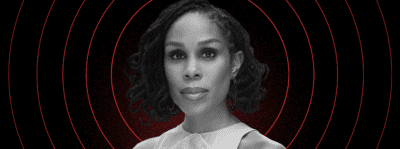Ellen Page Is in Escape Mode
Photos by Amanda Friedman
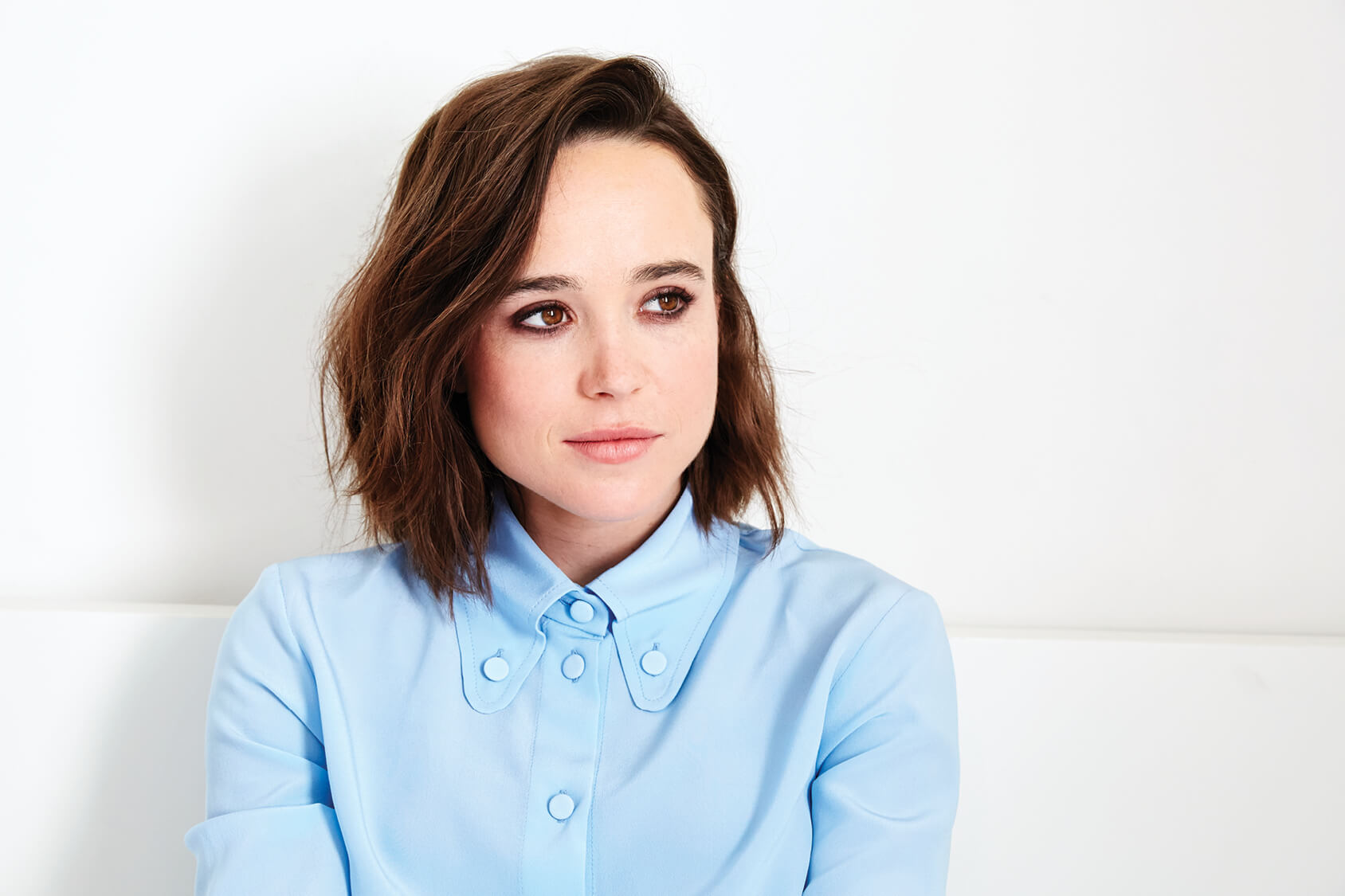
There’s a certain thrill that comes from being in close proximity to a celebrity. Depending on their level of fame—and perhaps your emotional attachment to the famous person in question—you may find your heart fluttering, your stomach weighing you down, your mouth drying up as you make a supreme effort to say something interesting, something memorable. New Yorkers like to think we’re above all of this hero worship. Celebrities are all around us, and we try to silently give them their peace; to act in any way, after all, is uncouth and uncool. It’s impolite to stare, to strike up conversation, to boldly ask personal details they’d otherwise avoid revealing when giving interviews.
But to interview a celebrity—you’re given carte blanche to delve deep into the persona and psyche of someone you previously knew only through your TV (or these days laptop) screen. The celebrity profile is a genre of writing that delivers what we most want out of the famous people we admire from afar: a window inside their personal lives, the curtains slowly pulled back by the journalist who has earned unfiltered access into the lives of a typically guarded and aloof individual.
But how much can you learn about someone during a first meeting—much less extrapolate perspectives, motivations, and emotions? Interviewing a celebrity can feel, at times, like a one-sided first date; you make some conversation over coffee, establish a friendly rapport. You talk about the new film, or the new album, or maybe the new book (hopefully one not ghostwritten by someone with whom you are probably friends). Eventually, you strike up the courage to ask something more personal, but ultimately chicken out—you don’t want to offend them, and you want them to like you and your piece, because, after all, there’s sometimes the notion that the person you’re interviewing is, by the end of the two-hour meeting, just your friend, albeit one you will probably never see again and about whom you will brag to everyone you know later that evening.
“That’s something we know as people.
We can relate to running in panic.”
But even a faux-friendship is, alas, not possible when you talk to a famous person over the phone. And that’s definitely not the case when you talk to a famous person like Ellen Page, an actress you’d think you could absolutely lock eyes with on the sidewalk without feeling like either one of you are infringing on the other’s territory. But the actress, who was, as she described it, “in escape mode” while on vacation in Nova Scotia, was willing to spare some of her private time with me nonetheless.
Here are a few stray facts about Ellen Page culled from her Wikipedia page, which is generally not the most reliable resource but will do well enough in a pinch. She was born February 21, 1987 in Halifax, Nova Scotia. She’s an atheist (despite attending a Buddhist school). She’s in a relationship with Samantha Thomas, an artist and a surfer. None of these are things we talked about in our interview, although they are, strangely, personal details readily available to the public. (Their accuracy could very well be questionable.)
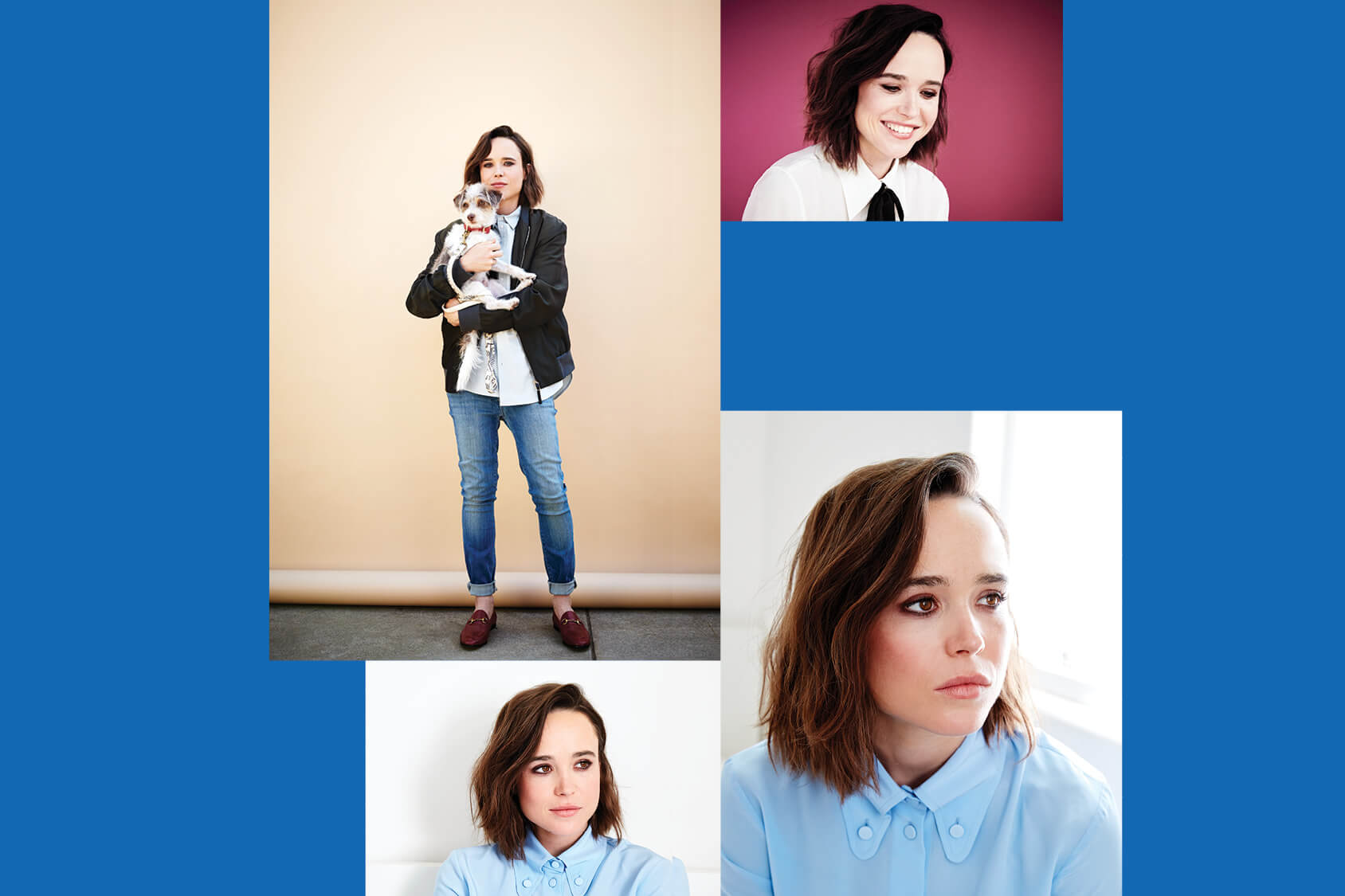
Instead, our conversation focused more on the two films she’s promoting this month: Into the Forest, a dystopian thriller, hits theaters on July 29, and Talullah, an independent drama with comedic overtones, premieres on Netflix, also on July 29. Despite their drastically different premises (and the fact that Page shot them a year apart), they do have eerily similar qualities. In both, Page plays a young woman who is struggling with the concept of home, each trying to ground herself not to a specific place, but to people.
Into the Forest, which Page co-produced, takes place in an ambiguous time—perhaps the distant future—with Page playing Nell, a high school student whose average world crashes around her when a sudden and unexplained power outage wreaks havoc over the residents of her rural community. Nell must put aside her SAT study manuals and a budding relationship in order to survive alongside her sister, Eva (played by Evan Rachel Wood), as the comforts of home begin to crumble around them and an increasing apocalyptic natural world begins to encroach. The extraordinary elements of the film, bordering on science fiction, were less of a struggle for Page to get a handle on. She’s already twice played a superhero (Kitty Pryde in 2006’s X-Men: The Last Stand and in 2014’s X-Men: Days of Future Past), and she admits that the physical aspects of her performance, the “running-as-fast-as-you-can-with-utter-panic parts,” aren’t much of a stretch for her. “That’s something we know as people,” Page says. “We can relate to running in panic.”
“I thought, ‘Oh, I’m OK, I’m not carrying anything anymore,
I’ve dealt with this!’”
The appeal, then, of Into the Forest was less about the film’s premise and more about Nell’s emotional journey. “Nell starts off in the beginning just… youthful, with specific expectations that she’s attached to and is really certain are going to happen,” Page says. Cinema has always offered extraordinary plot devices that force characters to experience some sort of personality crisis, and an apocalyptic disaster will certainly do the trick. But regardless of the film’s somewhat extreme nature, Page found Nell to be an everyday sort of character—as was Wood’s Eva. Wood’s presence on set, Page insists, helped eased her into her role. “Evan and I are close,” she says, “and she’s an extraordinary person to get to work with. There’s just so much power. She’s so present.” The struggle, then, was finding solid ground in a surreal world that was, in turn, much like our own. “Those quieter moments end up being trickier… What do you hold on to?” she asks. “For me, it was the strength and the clarity of the journey they go on in a short amount of time. It was a lot of growth they were forced into, which is interesting to me: being forced into resilience and self-reliance.”
One can possibly sense a pattern among Page’s most notable roles; many of them learn some form of resilience or self-reliance in their respective films—either forced, or on their own terms. Her breakout role is still her most notable: the pregnant, sixteen-year-old Juno MacGuff, the titular character in Jason Reitman’s 2007 comedy Juno. The film earned Page an Oscar nomination when she was just 21; she had, however, gained attention two years earlier playing another precocious teenager in the thriller Hard Candy, in which she entraps an older man she’s suspected to be a pedophile into a deadly game of psychological cat-and-mouse. Since then, she’s nearly cornered the market on teenage angst, and was possibly never finer than as the lead in Drew Barrymore’s directorial debut Whip It as an up-and-coming roller derby queen whose aspirations miff her former beauty-queen mom.
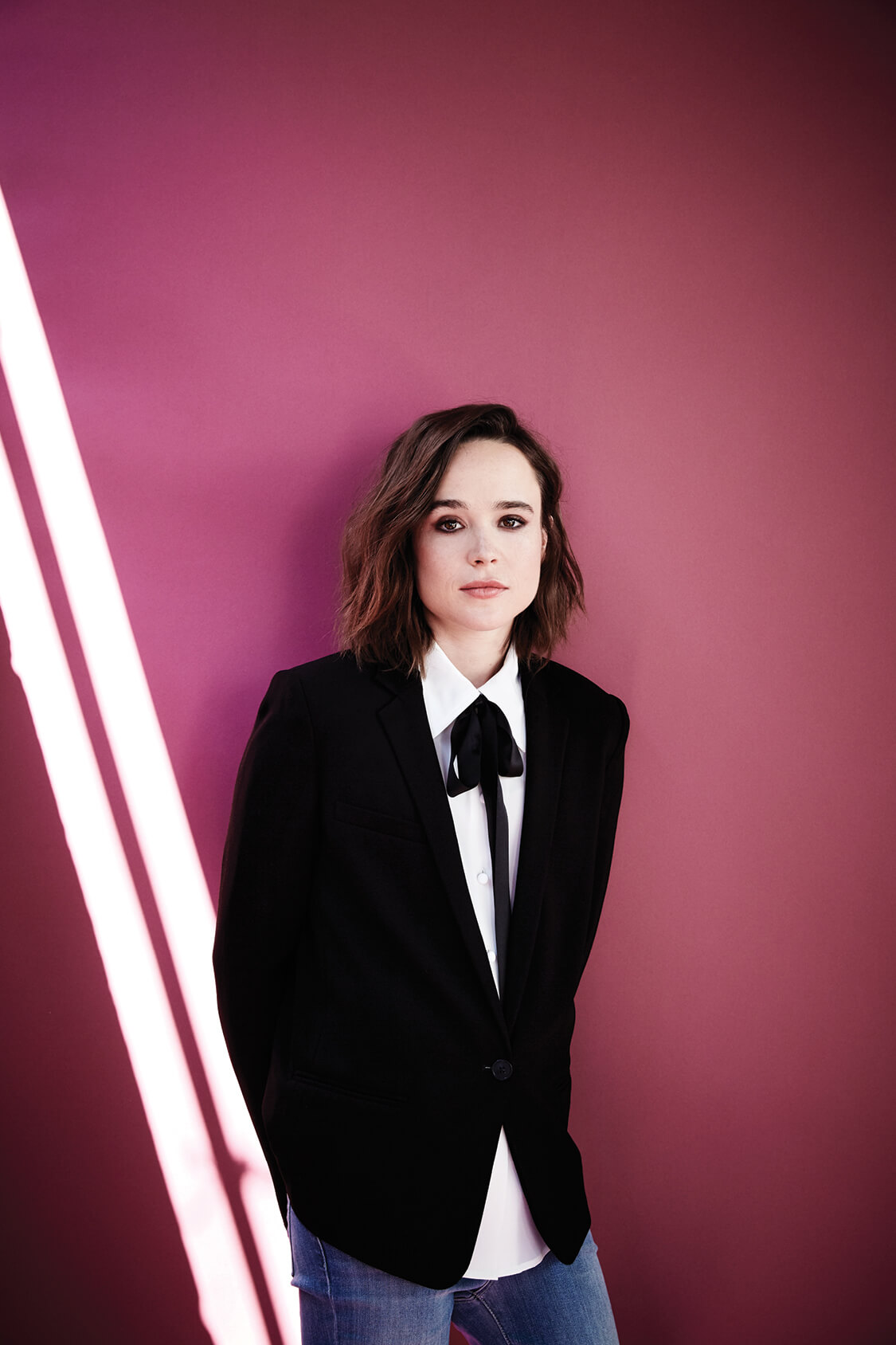
Now 29, Page has made some strides against typecasting; she played a vampy actress who nearly seduces Jesse Eisenberg in Woody Allen’s To Rome With Love, turned up as an architecture student who slips into the mind of Cillian Murphy (alongside fellow travelers Leonardo DiCaprio, Joseph Gordon-Levitt, and Tom Hardy) in Christopher Nolan’s mind-bending thriller Inception, and appeared as a woman dealing with her lesbian partner’s terminal illness in Freeheld alongside Julianne Moore. Into the Forest may feel like a step backward, as she’s playing another teenager, but it’s a role she handles with extreme ease—and one that doesn’t feel like an easy job (the running-through-the-woods thing notwithstanding).
Talullah, then, feels not just thematically appropriate, but also possibly a sign that the on-screen Page is maturing,too. She stars as Lu, a wise-cracking drifter who, like Into the Forest’s Nell, is forced to deal with some heady real-world problems. After her boyfriend abandons her on the road, Lu makes her way to Manhattan to find him. A chance encounter with a detached housewife named Carolyn (played by Tammy Blanchard, channeling more of a Bravo personality than Donna Reed) ends with Lu running off with the woman’s two-year-old, Madison; Carolyn had left the child with her in order to embark on an extramarital affair.
To only complicate an already potentially melodramatic plot, Lu turns to her missing boyfriend’s mother, Margo (played by Allison Janney, who coincidentally played Page’s mother in Juno). Lu then takes advantage of her supposedly good deed and passes off the rescued child as Margo’s granddaughter, giving herself some time (and shelter) before she has to eventually come to terms with her actions—all the while a city-wide search for Madison has taken place.
Talullah sounds like a heavy film, but it has a surprising levity; it makes sense that its writer-director, Sian Heder, is an alumna of the Orange Is the New Black writing staff. And its decidedly mixed tones proved a perfect cocktail for Page, who immediately loved Heder’s script. “I loved how funny Sian’s script was,” Page says. “By the end I was crying, and it’s really rare that I cry while reading a script—let alone one this funny.” It’s also rare to find a film like Talullah; at its center are three women who have incredibly complicated personalities—each practically antiheroic. Beyond Page’s frustratingly wayward Lu, there’s the embittered Margo, whose husband has left her for another man and whose son also fled her home, and the tragic Carolyn, who on the surface is just a spoiled, unfit mother, but under layers of drunken bravado (plus makeup and skin-tight shapewear) is a much deeper character weighed down by self-loathing.
“I think Sian is so phenomenal in that way,” Page says of her director’s vision of these three women. “She has an ability to flip everyone and everything on its head.” Page admits she turned to Heder throughout Talullah’s production when it came to crafting the character of Lu, focusing on how “to remove the Ellen emotions” after having such an impassioned response to the script. Ironically, the physical nature of the film became more of a focus; Page had to learn “the way she walks, the way she eats, the way she exists in the world.” As Lu has an emotional transformation on screen, you can also watch Lu—and Page—physically change along with it. But Page refuses to take sole credit for her performance. “I looked to Sian for guidance,” she says. “She would even come in and give a note, and my response was pretty much always, ‘Oh my god, of course.’ In that sense it felt like it was a collaboration, but I felt very guided by her, to be honest.”

It’s difficult, though, not to see a little bit of Juno MacGuff in Lu—it’s almost as if she had her baby and skipped town, leaving behind the hamburger phone and an ineffectual Michael Cera (but probably holding on to the Moldy Peaches cassettes). They share similar traits, particularly an overly sarcastic sense of humor and a knack for shocking the uptight adults around her. While that seemed quirky and cute in Juno, those characteristics seem more like flaws in Lu—or, at the very least, coping mechanisms. The difference lies in their age; Lu is not shackled by the restrictions of being a teenager, as Juno is. But her shirking of responsibility—particularly while she has essentially kidnapped a toddler—bespeaks a social ineptitude. “She’s obviously unique in how she looks at the world,” Page laughs.
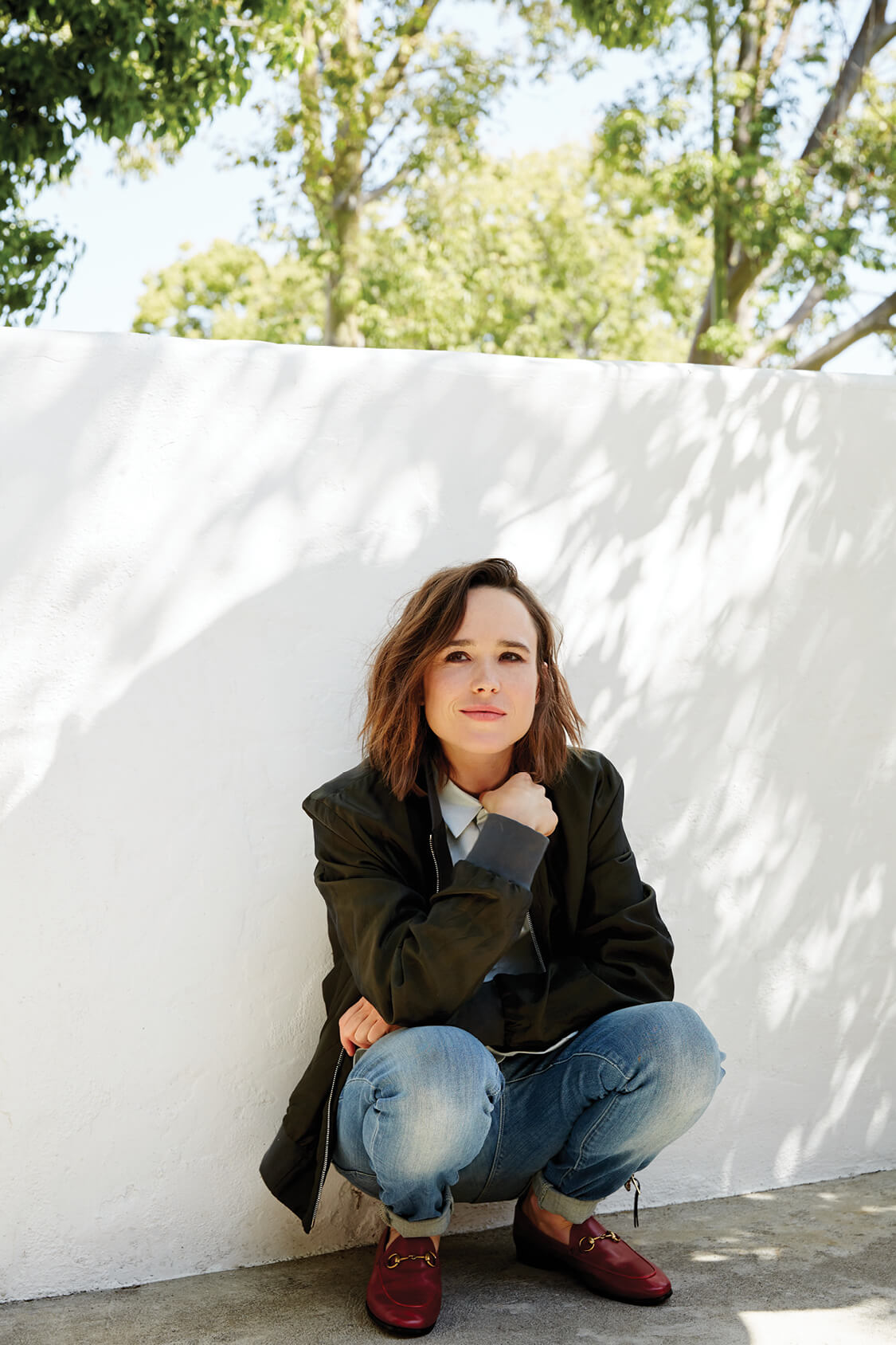

It’s less clear, however, how Page sees the world; the phone interview obviously prohibits a sense of understanding. But even if we had met in person, it’s likely that Page, who seems as much an introvert as her on-screen persona is extroverted, would be similarly aloof. After all, she’s been in this business long enough, having gotten her start as a child actress in her native Canada. It’s probably why, despite approaching 30, she maintains a sense of spritely youthfulness balanced with the wisdom of an actor whose career spans almost two decades. She’s dealt with the experience of compartmentalizing public and private lives—two years ago, she broke that barrier when she came out publicly in a speech during a Human Rights Campaign conference. It was the second closet from which Page, like many celebrities before her, had to come out. “First of all, I thought everyone knew,” she says. “But it was still probably one of the most nerve-wracking and emotional moments in my life. It’s interesting, because I thought, ‘Oh, I’m okay, I’m not carrying anything anymore, I’ve dealt with this!’ And then I had to read [that speech] so many times so I was able to get through it. There is something shocking about it that in a way it was a good experience to have, because we can sometimes forgot where we are storing a lot of that emotion.”
“It’s really rare that i cry while reading
a script—let alone one this funny.”
It’s funny, though, that the private life of an actor is something to which his or her fans—or anyone who has seen them on camera—feel entitled to have access. Page says that her public admission of that aspect of her personal life did feel like a weight lifted from her shoulders; she’s even parlayed it, in a way, into a hosting gig: she co-starred in the VICELAND series Gaycation, traveling across the globe to examine the lives of queer people in places beyond our increasingly comfortable and accepting borders. As an actor, Page has learned to avoid those “Ellen emotions” in order to get the work done. As a private person, albeit a recognizable one, Page must keep something to herself, especially in a world in which so much of her is readily available to parse and interpret without her control. She lets her various alter egos speak for her instead. It’s less of an escape as much as it is a healthy retreat, another stop on her own emotional journey. ♦
Stylist Sam McMillan; Makeup Toby Fleischman; Hairstylist John D
You might also like 
















